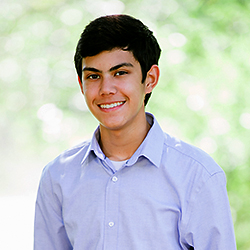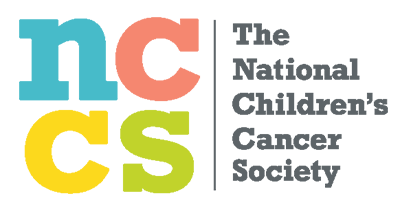Meet Brandon Caramanis

Years Awarded:
2021-2022
2020-2021
2019-2020
2022-2023
"My entire world view today is directly due to the personal growth I experienced throughout treatment, and to me that opportunity is the essence of survivorship."
Before leukemia, I had been a very critical child. I was extremely opinionated, constantly proposing alternative methods of doing things. I considered myself a perfectionist, and had difficulty accepting plans when they differed from my preconceived ideas. This all changed with my sudden diagnosis, as it shattered many of my dreams for the future, and I found that I no longer had control over many aspects of my own life. Some, like soccer, I had to leave behind; others, like school, threatened to leave me behind. My medications often produced unforeseen effects, and I quickly became accustomed to unexpected hospital visits. In other words, I was forced to become adaptable. No longer was I in a position to argue and criticize and complain when things didn’t go my way; instead I had to project resilience to keep my friends and family from worry.
My recovery was filled with emotional highs and lows. One medication, dexamethasone, was particularly brutal. I lost my ability to concentrate, and often left school feeling lost and confused. My physical coordination was also depressed. However, what this medication affected most profoundly was my ability to feel happiness. The books and games that had previously captivated me became tedious ways to kill time. Even my sense of taste was affected, and my favorite foods were no longer quite as appealing. After several consecutive days on Dex, my inability to find joy often created an overwhelming feeling of hopelessness, and I found myself looking weeks or months into the future for events that could excited me. I began keeping a “positive journal” in an effort to consciously seek out the good in each day. For three turbulent years, I fought not only to overcome cancer, but also the negativity that I faced, from without and within.
Then my treatment was over, and the burdens I had borne those long years suddenly evaporated. In comparison to my newfound freedom, the problems of everyday life seemed trivial. I remember the moment I realized just how drastically my perspective had shifted. I was waiting in the lunch line after a particularly challenging geometry test, and one of my friends was worrying about her grade. I must have said something to the effect of “you’ve done all you can,” because she responded, “you’re the most laid-back person I know.” I was shocked. I had always considered myself a perfectionist and uptight; I never expected to ever be described as laid-back. That was when I truly comprehended the impact that cancer had had on my life. While I still held myself to high standards, I had learned to temper my perfectionism with a more flexible mindset. My entire world view today is directly due to the personal growth I experienced throughout treatment, and to me that opportunity is the essence of survivorship. Cancer took a lot from me, but it gave me more: a new confidence, a new perspective, and a unique ability to share that perspective with others. During my treatment, I had never wanted to be known as “the kid with cancer,” but I realize now that the most important part of my story is not “the kid with cancer,” but the kid without cancer. The survivor. The person cancer made me – and the person I’ve always wanted to be.
